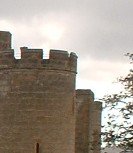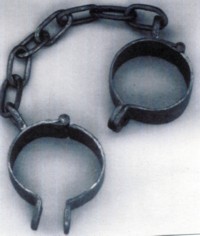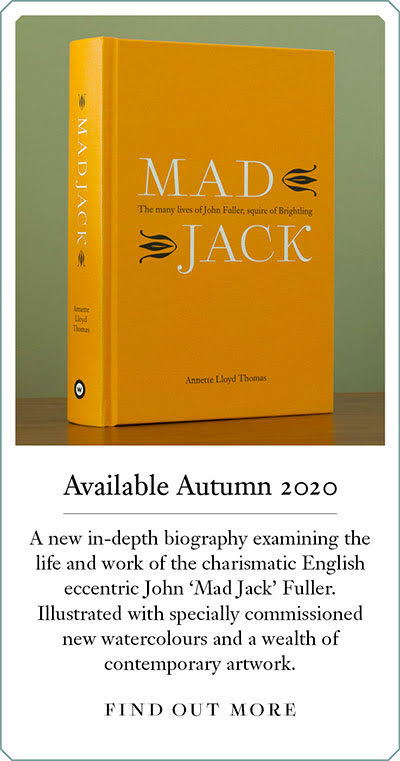Dr Fulke Rose & Elizabeth Langley
Dr Fulke Rose moved to St Thomas in the Vale, Jamaica, from Mickleton in Gloucestershire. By 1670 he owned 380 acres and was one of six colonists who regularly imported significant numbers of enslaved people via the Royal Africa Company, which had a monopoly on the British trans-Atlantic trade at that time.
On 11 Jun 1678 at Port Royal, Jamaica, he married Elizabeth Langley, the daughter of Alderman John Langley of Cornhill, London. They had eleven children including daughter Elizabeth, who was born in 1683. She married John Fuller of Waldron, Sussex in 1709 and he named their Brightling estate Rosehill in her honour. Elizabeth Rose and John Fuller are John "Mad Jack" Fuller's grandparents.
A massive earthquake decimated Port Royal in 1692 and Fulke Rose returned to England to plead for aid from the government in order to rebuild the town and essential port. He died there in 1694. His widow married physician Sir Hans Sloane who's collections formed the basis of the British Museum.
Fulke Rose's Mickleton Estate at StThomas-in-the-Vale was inherited by his daughter Ann Rose, who had married Thomas Isted. The Knollis Estate (sometimes Knowles), St Catherine passed down into the hands of John Fuller and Elizabeth Rose.
Rose Fuller & Ithamar Mill
Rose Fuller, the second son of John Fuller and Elizabeth Rose, was born 12 April 1708 in Brightling, Sussex. He trained as a doctor in Leyden, Netherlands and Cambridge and was appointed physician to the British troops in Jamaica. He resided in Spanish Town between 1733 and 1756, where he was appointed Chief Justice of Jamaica in March of 1753. There is no evidence that any other Fullers in the immediate family ever visited the island.
On 26 April 1737 he married sixteen year old Ithamar Mill, daughter of planter and politician Richard Mill (sometimes Mills). Sadly, she died in childbirth less than a year later. Their infant did not survive.
After the death of his brother John Fuller Jr in 1755, Rose returned to England and served as MP in three different constituencies: New Romney (1756-1761), Maidstone (1761-1768); Rye until his death (16 Mar 1768-7 May 1777). He was an active proponent in the West India Lobby and an anti-abolitionist.
When Rose Fuller's will was probated in 1779, the properties of Grange Pen, St Catherine and Knollis with their combined total of 290 slaves (159 male and 131 female) were left to his nephew John "Mad Jack" Fuller.
The Fuller Family of Sussex accumulated the bulk of their wealth from two sources, iron founding in the Weald and sugar plantations in Jamaica. The funds generated from these activities allowed them to purchase lands in Sussex and increase their power and position in society.
From the fifteenth to the nineteenth century Europeans transported about 10 million enslaved Africans to the Americas. On the Fuller's Jamaican estates, hundreds of slaves tended livestock, worked the fields and processed sugar and rum. It is therefore unsurprising that the Fullers politically opposed the abolition of slavery and were active participants in the West India Lobby. With the exception of the 23 years Rose Fuller spent in Jamaica, the Fullers were absentee landlords.
Please note, the author in no way supports or condones the enslavement of Africans. The intent of this page is to present an accurate account of the Fuller's slave ownership in historical context.
Map of Jamaica showing current parish boundaries.
St Thomas-in-the-Vale is now part of the parish of Saint Catherine. The current Parish of Saint Thomas was formerly referred to as St Thomas-in-the-East to avoid confusion.
John "Mad Jack" Fuller
At the age of twenty, Jack Fuller inherited the Brightling Estate, then called Rosehill, and the Jamaican properties from his uncle Rose Fuller.
While Knollis was a sugar plantation where rum was also produced, Grange Pen served a different purpose. Cattle and sheep were raised, corn and pasturage grown, wainage maintained and stored and enslaved people hired out.
When he died in 1834, he left an estate of £160 000 (£20 million in today's terms) which included about 270 enslaved people. His main beneficiaries were his nephew Peregrine Palmer Fuller Palmer Acland and Augustus Elliot Fuller, the son of his cousin John Trayton Fuller. The former inherited Jack's London townhouse at 36 Devonshire Place and the latter inherited Rosehill and the Jamaican estates.
Augustus Eliott Fuller
Britain abolished the slave trade in 1807, however enslaved people were not freed until the Slavery Abolition Act of 1833 took effect on 1 August 1834. Jack Fuller passed away on the 11th of April that same year and so it was A.E. Fuller who received compensation payment from the government. On 23rd Nov 1835 he received £3895 7S 7D1st for 209 enslaved people at Knollis Estate and on 1st Feb 1836 he received £762 16S 10D for 44 enslaved people at Grange Pen.
"... and also of my negroes and other Slaves and all my horses Mules Asses Sheep Cattle carriages Mills Coppers Stills Worms Worm Tubs and all other goods tools implements utensils and things whatsoever being in or upon or about the plantations Sugar Works lands tenements or hereditaments in the Island of Jamaica now in my possession under or by virtue of the will of my late Uncle Rose Fuller Esquire deceased "
The last will and testament (with codicils) of Mr John Fuller of Rose Hill in Brightling,
5 November 1823.
John 'Mad Jack' Fuller
Jamaican Sugar Plantations
On the Trail of Mad Jack Fuller BLOG
Fuller Family of Sussex GENEALOGY PAGES












